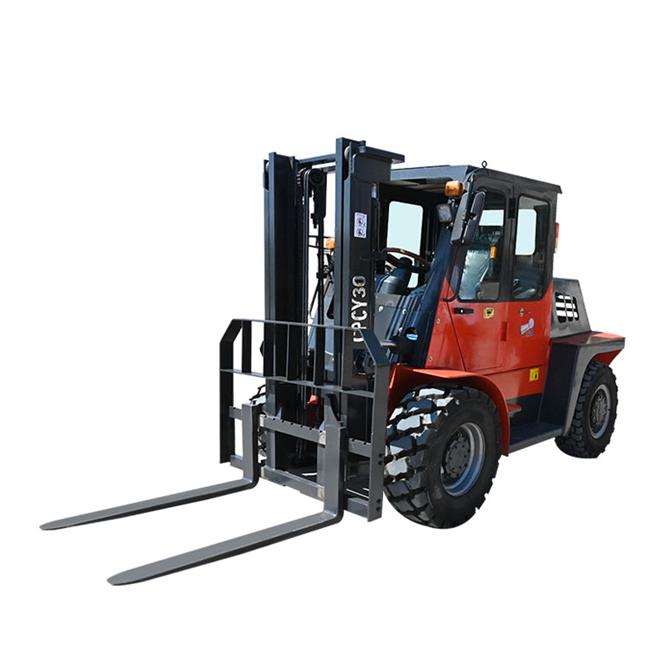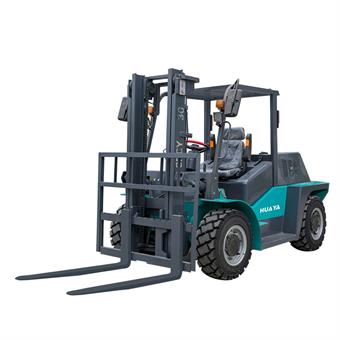
Actualités
Dans le monde de la manutention et de la logistique, chariots élévateurs tout terrain jouent un rôle essentiel dans le bon déroulement des opérations, en particulier dans les environnements difficiles. Qu'il s'agisse d'un chantier de construction, d'une cour à bois ou de tout autre environnement extérieur, ces machines robustes sont conçues pour naviguer sur les terrains les plus difficiles. Dans cet article de blog, nous allons nous pencher sur les principaux types de chariots élévateurs tout-terrain, en mettant en lumière leurs caractéristiques et leurs applications.

Vue d'ensemble : Les chariots élévateurs à mât vertical sont le meilleur choix pour les tâches qui nécessitent des hauteurs de levage importantes.
Applications : Couramment utilisé dans la construction pour des tâches telles que la charpente, la couverture et l'empilage de matériaux.
Vue d'ensemble : Les chariots télescopiques, ou télescopiques, sont polyvalents et dotés d'une flèche télescopique, ce qui les rend idéaux pour les tâches nécessitant une extension de la portée.
Applications : Largement utilisé dans l'agriculture, l'aménagement paysager et les projets de construction.
Vue d'ensemble : Les chariots élévateurs à mât droit sont compacts et connus pour leur maniabilité dans les espaces restreints.
Applications : Parfait pour les travaux dans les parcs à bois, les pépinières et autres espaces extérieurs confinés.
Vue d'ensemble : Ces chariots élévateurs combinent les caractéristiques d'un mât vertical et d'un télescopique pour une plus grande polyvalence.
Applications : Convient à un large éventail de tâches, de la construction à la manutention industrielle.
Capacité d'adaptation : Conçus pour fonctionner sur des surfaces irrégulières, ces chariots élévateurs offrent une adaptabilité inégalée dans les environnements extérieurs.
Construction robuste : Leur construction robuste garantit leur durabilité, ce qui leur permet de résister à des conditions difficiles.
Polyvalence : Grâce aux différents types disponibles, il existe un chariot élévateur tout-terrain pour chaque application, ce qui garantit l'efficacité dans divers secteurs d'activité.
Non, les chariots élévateurs tout-terrain trouvent des applications dans divers secteurs, notamment l'agriculture, la sylviculture et l'aménagement paysager.
Les chariots télescopiques se distinguent par leur flèche extensible, qui permet d'augmenter la portée et la polyvalence de la manutention.
Entretien régulier : Assurer un entretien régulier pour maintenir le chariot élévateur en parfait état.
Formation des opérateurs : Former correctement les opérateurs de chariots élévateurs afin d'améliorer la sécurité et l'efficacité.
Évaluation du terrain : Évaluer le site de travail afin d'identifier les difficultés potentielles et de garantir la sécurité des opérations.
En conclusion, il est essentiel de comprendre les principaux types de chariots élévateurs tout-terrain pour les entreprises qui recherchent l'efficacité dans la manutention des matériaux. Qu'il s'agisse d'un chariot à mât vertical, d'un chariot télescopique, d'un chariot à mât droit ou d'un chariot à portée étendue, chaque type présente des caractéristiques uniques répondant à des besoins spécifiques.
